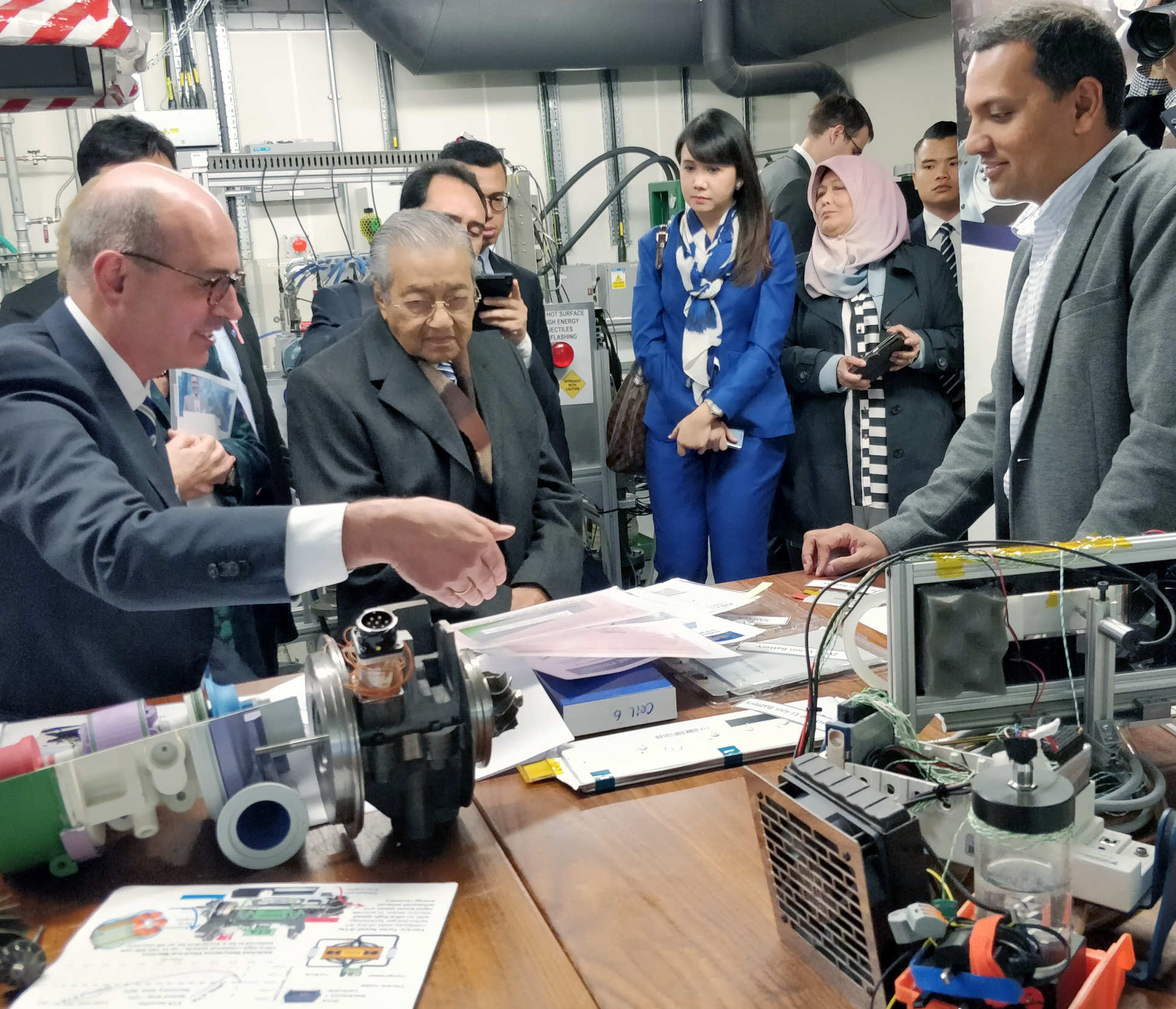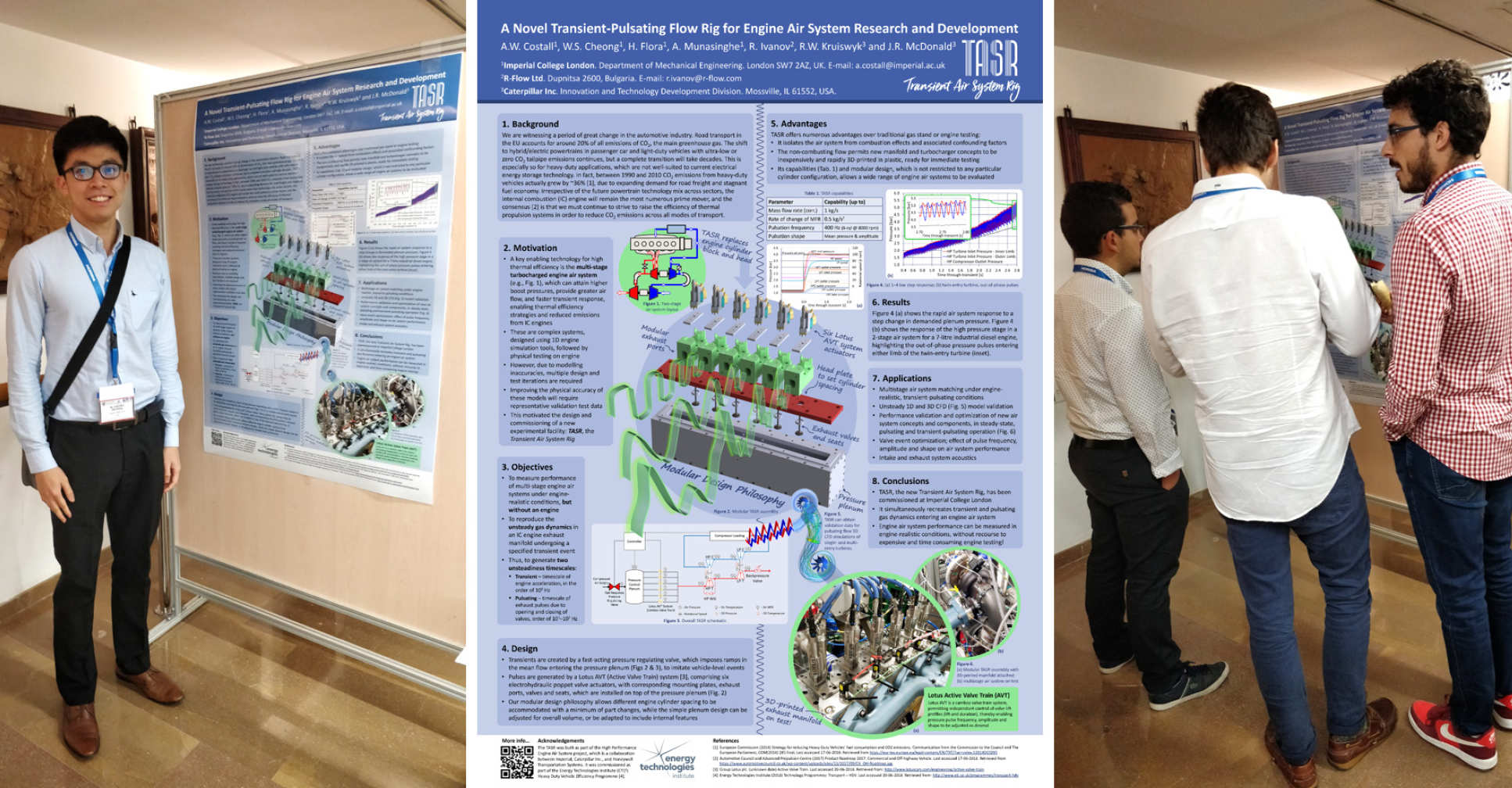/fit-in/1440x9999999/prod01/channel_3/media/imperial-college/research-centres-and-groups/turbocharger-testing-and-research/enhanced_background_3000X1200.png)
SETTL
We focus on advancing sustainable energy technologies and turbomachinery by researching turbochargers, exhaust energy recovery, and impact of alternative fuels. Our vision is to improve performance and operation at both component and system level.
Quick Links
Overview
SETTL is a leading centre for experimental and numerical research dedicated to advancing turbocharging, electrification technologies, and waste heat recovery. We focus on turbocharger research alongside exhaust energy recovery and alternative fuels, aiming to improve system efficiency and powertrain performance. Our work integrates advanced modelling and experimental capabilities to address the challenges of sustainable energy and support the transition to low-carbon technologies.
Latest news
- Launch of the MHIET-Imperial Future of Boosting Innovation Centre, February 2019
- Prime Minister of Malaysia, Tun Dr Mahathir Mohamad, visits the Turbo Group laboratory, 24 September 2018
- Vincent Cheong and Aaron Costall present TASR poster at THIESEL Conference, September 2018
- Experts build pulsed air rig to test 3D printed parts for low carbon engines, June 2018
The MHIET-Imperial Future of Boosting Innovation Centre was officially launched on 1 February 2019. This long-term partnership in turbocharger development will bring together expertise across advanced research on boosting and electrification technologies as well as in critical areas for the understanding of the complex physics behind these processes. The aim of this collaboration is to carry out detailed research on state-of-the-art turbocharger and exhaust energy technologies to further improve engine performance and operation.

Photograph: Professor Ricardo Martinez-Botas (left) and Dr Srithar Rajoo (right) explain the research of the Turbo Group to the Prime Minister of Malaysia, Tun Dr Mahathir Mohamad (centre).
The Prime Minister of Malaysia, Tun Dr Mahathir Mohamad, visited the Turbo Group laboratory today, during his visit to Imperial College London as part of his tour of the United Kingdom. Professor Ricardo Martinez-Botas, supported by research students and staff, gave the Prime Minister a detailed review of the low carbon vehicle research being carried out in both the Turbo Group and the wider Department of Mechanical Engineering, including our unique experimental facilities, as well as advanced technologies such as electrically-assisted turbocharging and batteries for hybrid and electric vehicles. The Turbo Group has long standing links with Malaysia, now formalized through the UTM Centre for Low Carbon Transport (LOCARTIC), a collaborative research venture between Universiti Teknologi Malaysia and Imperial College London.
 Photographs: Vincent Wei Sheng Cheong; the poster; conference attendees learn about TASR during the poster session.
Photographs: Vincent Wei Sheng Cheong; the poster; conference attendees learn about TASR during the poster session.
Vincent Cheong and Aaron Costall presented their poster, "A novel transient-pulsating flow rig for engine air system research and development", which describes the new TASR facility, at the THIESEL 2018 Conference on Thermo-and Fluid Dynamic Processes in Direct Injection Engines, September 2018.
--tojpeg_1537809146812_x2.jpg) Photographs: TASR employs a Lotus Active Valve Train (AVTTM) system to generate engine-realistic exhaust pulses, while cold flow allows new manifold designs to be 3D-printed and tested in plastic; a two-stage air system for an off-road heavy-duty diesel engine on test.
Photographs: TASR employs a Lotus Active Valve Train (AVTTM) system to generate engine-realistic exhaust pulses, while cold flow allows new manifold designs to be 3D-printed and tested in plastic; a two-stage air system for an off-road heavy-duty diesel engine on test.
The new Transient Air System Rig (TASR) was publicized in an Imperial College London website article: "Experts build pulsed air rig to test 3D printed parts for low carbon engines", in June 2018. For further information, please visit the TASR page.